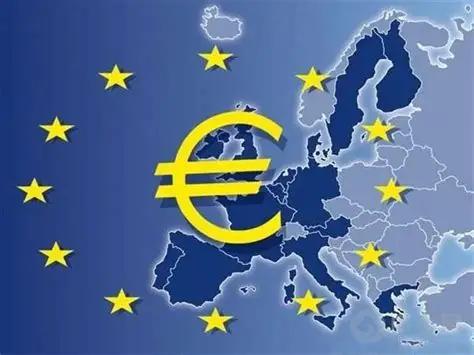
The latest preliminary data released by Eurostat shows that the eurozone's gross domestic product rose slightly by 0.2% quarter-on-quarter in the third quarter of this year. This growth rate, which is slightly higher than market expectations, still cannot hide the predicament of insufficient economic growth momentum in the Eurozone. Just as the data was released, ECB Executive Board Member Schnabel issued a warning on November 12 that inflation risks in the eurozone were on the rise as the economy began to build momentum and governments increased their investment in military and infrastructure. This judgment adds new complexity to the already difficult policy balance of the European Central Bank.
A closer look at the third-quarter data reveals that the uneven distribution within the eurozone has continued to intensify. Driven by trade and domestic demand, the French economy grew by 0.5%, emerging as a bright spot in the Eurozone. The economies of Germany and Italy, however, have come to a standstill and can only barely avoid a technical recession. The performance of other member states varied greatly: Sweden topped the list with a month-on-month growth rate of 1.1%, Portugal increased by 0.8%, and the Czech Republic rose by 0.7%. Lithuania, Ireland and Finland, on the other hand, have fallen into a contraction zone. This significant differentiation reveals the varying resilience and vulnerability of eurozone countries in responding to external challenges.
Germany, which has been a traditional engine of economic growth in Europe, is particularly concerned about its economic stagnation. Germany's economy failed to grow in the third quarter after contracting by 0.2% quarter-on-quarter in the second quarter. The German Federal Statistical Office released a bulletin stating that the German economy performed poorly in the third quarter. Although fixed capital investment has increased, the further decline in foreign trade exports has dragged down the overall economic performance. The latest data for November also cast a shadow over the economic outlook for Germany. The German ZEW economic sentiment Index, released on November 11th, stood at 38.5 points, a slight decrease of 0.8 points from the previous month. "Although government investment plans may provide economic stimulus, structural problems still exist," commented Professor Achim Wambach, president of ZEW.
The inflation situation is equally complex. Germany's inflation rate in October was confirmed at 2.3%, down from the peak in September. This slowdown is mainly attributed to the weakening of food inflation. However, inflation in the service sector remains stubborn, with prices rising by 3.5% year-on-year, becoming the main driver of inflation. It is against this backdrop that ECB Executive Board Member Schnabel made hawkish remarks on November 12: "I am talking about an economy that is recovering, with the output gap narrowing and significant fiscal stimulus expected, which will boost the economy." She made it clear, "If there is any risk, it is that the risk tends to rise." The European Central Bank has kept its key interest rate unchanged for three consecutive times, with the deposit facility rate remaining at 2.00%. Faced with contradictory economic signals, central bank policymakers have no choice but to seek a precise balance between "stabilizing prices" and "ensuring growth".
Despite numerous challenges, there are still cautiously optimistic voices in the market. The indicator of expectations for the eurozone economy remained stable in November, currently standing at 25.0 points, up 2.3 points from the previous month. Bert Clariant, chief economist of ING, expressed a cautious attitude: "Although economic growth is expected to gradually accelerate in the coming year, we remain cautious about whether this means that the European economy is beginning to grow at a sustained pace." Joe Nellis, a professor of economics at Cranfield University in the UK, was even more straightforward in his assessment: "The eurozone economy has managed to grow, but very slowly."
The market is closely watching the upcoming release of the Eurozone's industrial output data for September, which will provide new clues for judging the health of the eurozone economy. The investigation report of the ZEW Institute in Germany indicates that the outlook is deteriorating in the chemical and metal industries. In contrast, private consumption has rebounded significantly. These details collectively outline the true face of the eurozone economy - a complex economy teetering on the brink of recession yet still able to spot sporadic bright spots, and an economic union struggling to find balance amid a fragile recovery.

報告顯示,中國電力投資加速增長,預計2024年電網基建投資將超過5300億元。
近日,市場迎來了一則引人注目的消息:工業巨頭3M公司(MMM.N)在本周五公布了其季度業績報告,隨後股價飆升至近兩年來的
最近,外媒給OpenAI算了筆賬,今年可能要血虧50億美元。
近日,巴黎奧運會和世界鐵人三項協會聯合發布了一項重大決定,宣布因塞納河水質污染問題,原定於近期進行的奧運會鐵人三項首次下
當地時間7月18日,法國巴黎發生了一起令人震驚的持刀襲警事件。
近期,一則重大消息在國際舞臺上引起軒然大波,馬來西亞宣布加入金磚國家。
調查發現,互聯網和智能手機的使用幹擾了韓國近五分之一學生的生活。